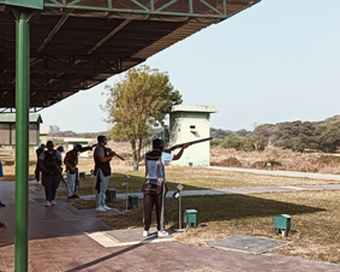 PM Modi visit USA
PM Modi visit USA Only the mirror in my washroom and phone gallery see the crazy me : Sara Khan
Only the mirror in my washroom and phone gallery see the crazy me : Sara Khan Karnataka rain fury: Photos of flooded streets, uprooted trees
Karnataka rain fury: Photos of flooded streets, uprooted trees Cannes 2022: Deepika Padukone stuns at the French Riviera in Sabyasachi outfit
Cannes 2022: Deepika Padukone stuns at the French Riviera in Sabyasachi outfit Ranbir Kapoor And Alia Bhatt's Wedding Pics - Sealed With A Kiss
Ranbir Kapoor And Alia Bhatt's Wedding Pics - Sealed With A Kiss Oscars 2022: Every Academy Award Winner
Oscars 2022: Every Academy Award Winner Shane Warne (1969-2022): Australian cricket legend's life in pictures
Shane Warne (1969-2022): Australian cricket legend's life in pictures Photos: What Russia's invasion of Ukraine looks like on the ground
Photos: What Russia's invasion of Ukraine looks like on the ground Lata Mangeshkar (1929-2022): A pictorial tribute to the 'Nightingale of India'
Lata Mangeshkar (1929-2022): A pictorial tribute to the 'Nightingale of India' PM Modi unveils 216-feet tall Statue of Equality in Hyderabad (PHOTOS)
PM Modi unveils 216-feet tall Statue of Equality in Hyderabad (PHOTOS)India Open Competition in Shotgun, organised by the National Rifle Association of India (N
- Hockey India names Amir Ali-led 20-man team for Junior Asia Cup
- Harmanpreet Singh named FIH Player of the Year, PR Sreejesh gets best goalkeeper award
- World Boxing medallist Gaurav Bidhuri to flag off 'Delhi Against Drugs' movement on Nov 17
- U23 World Wrestling Championship: Chirag Chikkara wins gold as India end campaign with nine medals
- FIFA president Infantino confirms at least 9 African teams for the 2026 World Cup
Banks will decide if to lower interest rates: Jaitley Last Updated : 06 Feb 2018 12:50:28 AM IST 
Finance Minister Arun Jaitley (file photo)
Sounding a note of caution on the inflationary impact of rising global crude oil prices ahead of the RBI's final monetary policy review of the fiscal, Finance Minister Arun Jaitley on Monday said that lowering interest rates is a decision entirely in the domain of banks.
In an interview to CNBC-TV18 following the presentation of the Budget 2018-19 last week, healso said that both oil prices and the monsoons are factors that could come in the way of India realising GDP growth of 8 per cent.
"Banks will decide on these matters," Jaitley said in response to a query whether lower interest rates are being ruled out in view of the latest inflation data and the current oil prices.
"One of our eyes is on the monsoons and the other on the price of oil. On oil prices we are at the outmost periphery of comfort. If it rises further, it throws up a challenge as far as inflation is concerned.
"Monsoon is a factor for agricultural demand and oil prices have reached the periphery of our limit," he added.The government's annual report on the economy tabled in Parliament before the Budget forecast a GDP growth of 6.75 in the current fiscal, to be followed by 7 to 7.5 per cent in 2018-19. The Economic Survey 2017-18 authored by Chief Economic Adviser (CEA) Arvind Subramanian, however, also said there were both upside potential and downside risks to this "baseline forecast" with rising global crude oil prices being the most potent among future challenges.
"GDP is analysed in a global situation and during the boomperiod it can grow by 8-9 per cent. But this is not the situation right now in the country," Jaitley said.
"If we reach 8 per cent, it is a good achievement for the country as no other country has achieved it," he added.
In line with the earlier official estimate of the country's GDP growth in the last fiscal, demonetisation-hit India's gross domestic product during 2016-17 grew at 7.1 per cent, Central Statistics Office (CSO) data showed last monthIANS For Latest Updates Please-
Join us on
Follow us on








172.31.16.186







